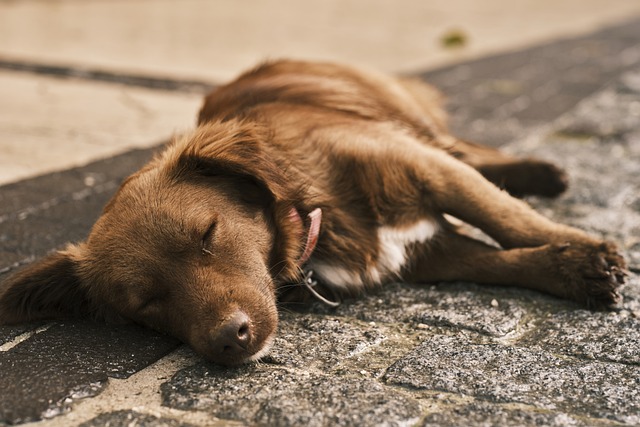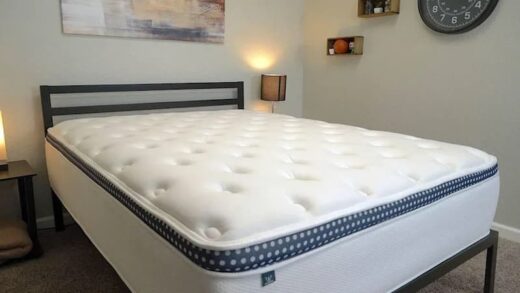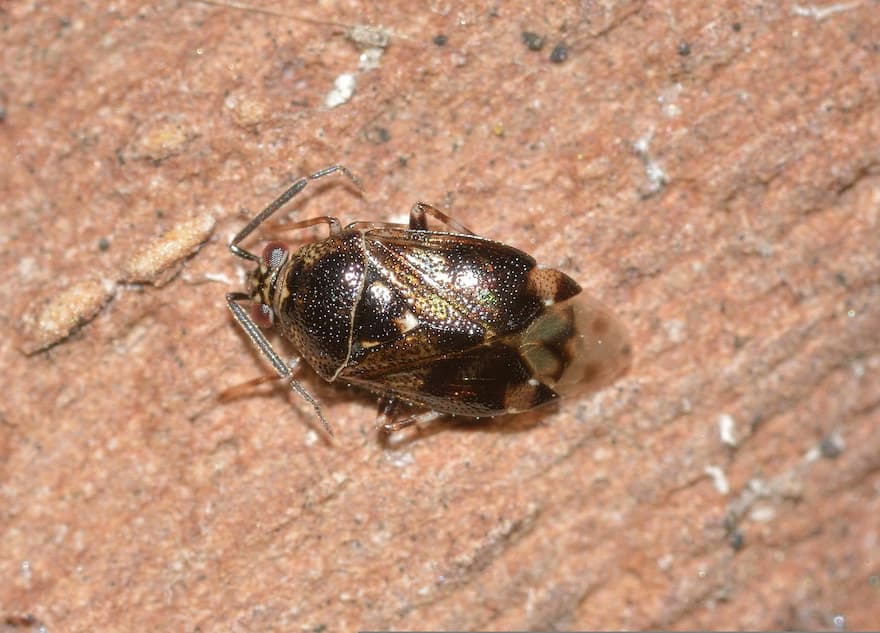How Much Do Puppies Sleep? Make Sure Your Puppy Gets Enough Sleep

How much sleep a puppy needs varies depending on a number of factors. Each puppy is unique due to its unique genetic makeup, environment, and pet parents’ diverse work schedules.
The main piece of advice from Werber is to let your puppy sleep if she wants to. Play with your puppy if she requests to be entertained. Make sure she has a pet or some entertaining toys to play with if you’re busy.
Table of Contents
How Much Sleep Do Puppies Need?
Dogs sleep more than humans do at all ages, and puppies sleep more than adult dogs do. Puppies need 16 to 18 hours of sleep per day on average, sometimes even more.
- Newborn – 8 weeks: Around 22 hours per day
- 8 weeks – 20 weeks: Around 18-20 hours per day
- Older dogs: Gradually reducing to around 13-15 hours per day
That’s right, dogs, and puppies in particular, spend the majority of their lives sleeping. Generally speaking, puppies need more sleep as they get younger. (Can you believe a puppy’s first ninety days are spent sleeping?) Therefore, despite the fact that it may seem like your puppy is sleeping too much, they are probably doing fine. Your puppy can nap all day long; in fact, this is the only time they will be able to get the rest they require.
Why Do Puppies Need So Much Sleep?
As compared to an adult dog, puppies sleep more. In a short period of time, their tiny bodies must undergo significant growth! Here are a few things that happen while your dog is sleeping.
Brain development: When your puppy is sleeping, the new information that entered its brain while they were awake can be processed. Additionally, the brain eliminates all toxins that have built up while it has been awake. Cognitive stability is aided by toxin removal from the brain and clearance of brain waste. When your puppy gets enough sleep as opposed to not getting enough, you’ll notice they focus better and are happier.
Energy conservation: There has to be a source for all that unflappable energy! And your puppy’s naptime is entirely to blame. Energy is required for the body to develop its systems, strengthen its muscles, and form bones. During sleep, your baby’s body experiences all of this growth.
Immune system development: The immune system changes over time. Puppies’ immune systems must be built up while they are sleeping because they are not born with them fully formed. This will protect them from disease.
In conclusion, sleep enables the immune system, body, and brain to regenerate and develop in your puppy. To become the charming grown tail-wagger you imagined, it takes a lot of sleep.
Is It Normal for Puppies to Sleep a Lot?
Healthy puppies need a lot of nap time, says Jeff Werber, DVM, a practicing veterinarian and veterinary medical journalist in Even 18 hours a day can feel normal in Southern California.
Puppies run around, burning a lot of energy while developing their muscles and brains, and then they need to crash. Long stretches of nighttime sleep interspersed with numerous naps are acceptable, even as many as 20 per day, according to Werber.
“Remember, puppies grow a lot more quickly than we do,” Werber says. “They require a lot of food and sleep due to their rapid growth.”
Can Puppies Sleep Through the Night?
Your furry child will eventually go to sleep all night long, just like human babies do, but it takes some training. Think about being alone in a strange new environment without your mother and siblings. Now that you’re their family, your puppy will sleep better at night and be more easily able to adjust to their new environment if they stay close to you.
Your puppy can develop a sleeping schedule with the aid of crate training. Crates offer a restful, secure, and reliable sleeping environment. (Additionally, it prevents them from destroying the house in the early morning hours by keeping them contained.) Make it cozy with a soft dog bed or blanket, and as a reward for entering, give your puppy a treat. In the beginning, however, be ready for a lot of barking at what seems to be nothing.
Since puppies have no bladder or bowel control when they are young, teaching your dog to sleep in a crate also aids in potty training. According to the general rule, a puppy’s age should be multiplied by one month to determine how long they can go between toilet breaks. Puppies need to go potty every two hours when they are two months old, every three hours when they are three months old, and so on.
Remember that each puppy is unique, so pay close attention to what they need. At first, it might be a good idea to set an alarm for nighttime bathroom breaks.

How to Get a Puppy to Sleep through the Night?
You can adjust your schedule if you and your puppy have established a crazy one that includes a lot of nighttime awake time, according to Werber.
Dogs react to your behavior and social cues. If you don’t want to play, “ignore them,” he says, and make sure they have other things they can do without you.
Getting your puppy on a regular schedule is crucial. Although you should let your dog sleep whenever he pleases, you should gently train him to associate fun times with food with mealtimes and bedtimes. A regular bedtime routine will help your puppy learn when you’re available for play and when you’re not.
Establish a Sleeping Schedule for Your Puppy
Create a sleeping environment: What location will your puppy be sleeping in? Because your dog will probably feel anxious in a strange environment, think about choosing a location that is close to you or where they can see you. To help your puppy relax and feel comfortable, try to create a space that is dark and noise-free.
Hydration and potty breaks: If your puppy doesn’t need to get up frequently to use the bathroom, it will sleep better at night. Set an alarm because the majority of puppies need to urinate every two hours. It will be simpler for you to hear your dog when they become agitated if they are close by.
Always take your puppy outside for potty breaks before bed and right after waking up to avoid accidents in the house. This goes a long way!
Good nutrition means better sleep: Your puppy needs energy to support their rapidly expanding bodies, strengthen their bones, and focus on training. Healthy dog food gives them this energy. Your child will play and sleep better if they eat a healthy diet.
Routines are important: If you incorporate a sleeping schedule into your puppy’s daily routine, they will pick it up more quickly. Dogs, like many humans, benefit from routines because they lower anxiety. Try to maintain a consistent schedule each day, but if you must alter it due to an emergency or travel, make the necessary adjustments to their schedule to ensure they still get the required amount of shut-eye.
Sample Puppy Sleep Schedule
For your convenience, I’ve provided a basic sleep schedule. Keeping track of your puppy’s sleeping patterns will help you adjust to their needs because every puppy is unique.
Morning:
- Wake up and take a potty break
- 15 minutes of play
- Breakfast time!
- Allow 30 minutes for their food to process
- Take them out for another bathroom break
Naptime
- Wake up
- Take a potty break
- No food during this period. Just provide 15 minutes of healthy play or a brief training session for basic commands
Afternoon
- Potty break upon waking up
- A longer walk or activity/play to tucker them out for their afternoon nap
Lunch
- 30 minutes to process food
- Potty break
Naptime
- Your pup will snooze in the late afternoon
- After all naps, immediately take your puppy out to potty and play for a while afterward
- Do some short training sessions
Evening
- Potty break every time your puppy wakes up
- Dinner time with a 30 minute food processing time
- Play or a take long walk to tire your pup out in time for bed
Quiet time
- Give your puppy cuddles galore to relax them before bedtime
- Potty break right before bedtime
Bedtime
- When it’s bedtime, place your puppy in the crate, offer them a treat, and say goodnight
Be patient with your puppy during the initial weeks. There’s a ton to discover about you and their brand-new world. Your puppy will eventually sleep through the night. We promise!
Tips for Helping Puppy Get Daytime Sleep
- Give your puppy some space.You want to keep him from relying on you to fall asleep, but it’s hard to resist cuddling him and letting him doze off in your lap. Families should practice leaving your puppy alone while he sleeps, especially kids. But be careful—he needs to be taken outside when he wakes up, so keep an eye on him.
- Display a sleeping area for your puppy.Encourage him to take a nap in his safe space, such as a crate, a dog bed, or a quiet area of the house where he can doze off without being disturbed, if he appears sleepy. He might take a while to figure it out, but eventually he’ll understand that’s where he should sleep.
- Follow a schedule.Schedule his day so that his active period is followed by his quiet period for sleeping. After playtime or a walk, he’ll likely be ready for a nap. Your puppy may take a nap every hour or so, sleeping for up to two hours. This amount of sleep is entirely normal.
- Recognize signs of exhaustion.Do not allow him to become overtired, no matter how much fun you are having. Unfavorable behavior can result from too much stimulation and exhaustion. Encourage him to relax by leading him to his crate or sleeping area.
Is Your Puppy Getting Too Much Sleep?
Probably not, but it can happen. Most healthy puppies will be content, active, and eating well. This indicates that they are getting the recommended amount of rest.
Call your veterinarian if your puppy is moody, overly exhausted (sleeping all day), or has a poor appetite. In any case, you ought to take your puppy to the vet on a regular basis, so if something is wrong, they ought to be able to spot it before you do.
Is Your Puppy Not Getting Enough Sleep?
Lack of sleep can lead to serious health issues in puppies.
Signs of sleep deprivation are:
- Low appetite
- Grumpy mood
- Lower activity levels
- Personality changes – can become aggressive or anti-social
- Over-excitement: A puppy can act in a similar way to a toddler who suddenly becomes overly animated, cries easily, or rushes around erratically.
To rule out any health issues, take your puppy to the vet if they are exhibiting signs of sleep deprivation. The cost of veterinary care can be reduced and puppies can be protected when the unexpected occurs with the help of good insurance.
When to See a Vet
Do you continue to be concerned that your puppy is sleeping too much? Do not worry, advises Werber.
“The gauge for me is not how long the puppy sleeps,” he says. “As soon as they wake up, I want to know how active, sociable, and hungry they are.”
It’s not a problem if you sleep for a long time. Instead, watch for:
- Activity level.If your puppy is less active between sleeping sessions than she was, “or she gets worn out fast, within a minute or two after waking up, that could be a heart issue or a bone issue,” Werber says.
- If your puppy doesn’t seem quite himself, it might just be nothing or it could be a sign of a neurological problem. “Is there any movement or behavior that the dog would normally exhibit?” It’s worth a vet visit, inquires Werber.
- Puppies need a lot of calories, so if your dog is suddenly not finishing meals or more hungry than usual, it’s good to get her checked out by a vet.


















![Nectar Premier Copper Mattress Review In 2022 [Updated]](https://www.myspacebeds.com/wp-content/uploads/2022/09/Nectar-Premier-Copper-Mattress-Review-In-2022-Updated.jpg)
![Therapedic Mattress Reviews Buy Or Avoid [2022]](https://www.myspacebeds.com/wp-content/uploads/2022/10/Therapedic-Mattress-Reviews-Buy-Or-Avoid-2022-520x293.jpeg)

